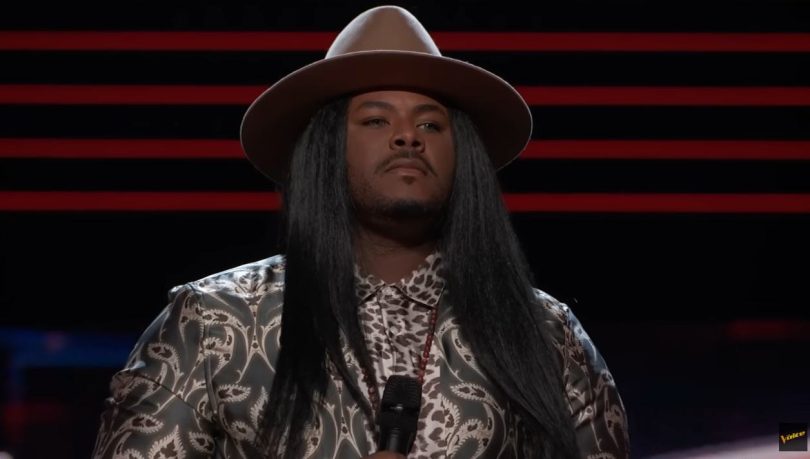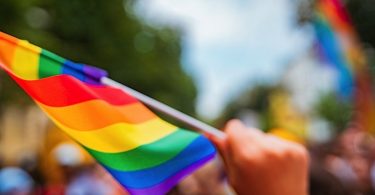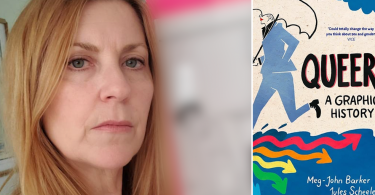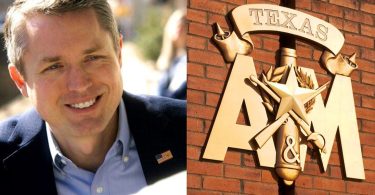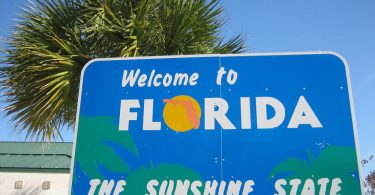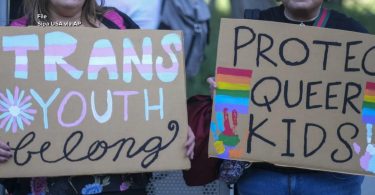HOLLYWOOD – Sophie B. Hawkins is back. Renowned as a singer-songwriter, musician, painter and a unique voice of social consciousness, she achieved critical and commercial success with her first two albums, Tongues and Tails (1992) and Whaler (1994), producing a string of single hits including “Damn I Wish I Was Your Lover“, “Right Beside You“, and “As I Lay Me Down“.
Her musical sound is unique with a blend of rock, pop, jazz and soul delivered with her distinctive vocal growl and heartfelt lyrics – ones that often herald a fluid sexuality.
Aside from GRAMMY award nominations, New York Music awards, the ASCAP award for longest running single, for starring on stage as Janis Joplin, paintings appearing in galleries around the world and her songs being featured on shows such as Stranger Things, Euphoria and Ozark, she is often thought of for her candid and outspoken take on sexuality and gender expression.
Long before Ron DeSantis was whining about “wokeness” and mental health experts saw the importance to embrace the concepts of fluid identities, Sophie self-identified as an “omni-sexual” in the 90s. While others scratched their heads at the term, she embraced concepts that are just now being understood and lived. Her new album, Free Myself, underscores the theme of authenticity and taking the freedom to be yourself as you are, and want to be seen.
We talked about her coming out moment, the one she defines as “the most important one of her career.” “It always makes me laugh when you talk about it, and smile,” she commented to me on my Rated LGBT Radio podcast:
“It was a moment of enlightenment for me to be faced with John Pareles of the New York Times in this diner in downtown Manhattan … prefaced by Columbia (Sony) that this was the most important interview and you had to get everything right. They did trust me to give an intelligent interview and did not give me any media training whatsoever. So I showed up and he asked me a bunch of questions about my upbringing and my musical influences, and then he just said ‘Are you a lesbian?’ At that moment, I thought, well, I have to tell the truth.”
She continued, “For me, telling the truth is telling the accurate truth. I knew my history was sort of diverse. I had never had a moment where I said ‘I am a lesbian’ or ‘I am a heterosexual’, in fact, there were moments of growing awareness at 9 years old when I thought ‘I love Paul Anacomb’ who was on the beach in Long Island one summer, he was older than me, I love him so much and had a crush on him, and then I literally looked at his mother and went ‘but I love her too.’ Then I said to myself ‘I have the LIBERTY and the great pleasure to love anyone I want. I can love both of them, and I do not have to choose. It was a great feeling—I was so young.
“Years later, I had an amazing affair with a man who was my teacher, my mentor, that lasted ten years. Then at some point, a woman seduced me, and I thought that was the most amazing thing too. It opened me up a lot emotionally… it opened up my song writing intuition… took me deeper. But when I was looking at John Pareles, I could not tell him all of that. So I took the word “omni” which means all, also ‘one’ and sexual, and said ‘I’m omnisexual’. He said, ‘What does THAT mean??’, I said, well John, it means my sexuality is not limited by my gender, or your gender…my sexuality is my creativity, my spirituality, my consciousness –it’s tied to me, my soul.”
Pareles had written a review of Sophie’s debut album, Tongues and Tails, in 1992, and the interview was a follow up in 1993. He said of her, “Sophie B. Hawkins is a pop singer with a rock-and-roll attitude, a jazz singer’s improvisational skills and a blues singer’s soul. She’s also a songwriter with a knack for melodies that are both catchy and complex.” Sophie was the first musician to come out as omnisexual in the mainstream media, and Pareles’ interview with her was groundbreaking for its time.
Thirty years later, her son’s friends are freely identifying as “omnisexual” without an inkling that she was the one who first coined the term.
“Don’t care what people think, You know you are on the brink, Of breaking the chain…baby love yourself, ain’t nobody else gonna carry your soul.” Lyrics from Love Yourself, from the album Free Myself
Since the start of her musical journey, Sophie has shown an uncompromising devotion to her singular truth, endlessly transcending boundaries and offering up new ways of experiencing the world around us. Her truth is the roots of Free Myself and Sophie’s raw yet poetic lyrics as well as her captivatingly distinctive vocals.
Free Myself features some of her most emotionally powerful material to date and contains anthems that LGBTQ youth need especially now. Tapping into the same passion-filled storytelling and colorful eclecticism that inspired her previous work, Sophie embarks on a new creative chapter of independence and positivity in Free Myself.
Certainly, LGBTQ youth working to express their uniqueness and self-definition will hear themselves in the lyrics of the album’s title track and its nascent omnisexuality:
“I want to free myself with you. Let my soul fly. I can’t lift these feelings, too big for me to carry. Why does it matter what we’re born. Aren’t we supposed to become mind, soul and body, who we love and who we want to marry?”
As Sophie talks to television personalities, she gets reductive questions such as “how has your music evolved?” The truth is, her music has not been on a path of development, but rather, has entered a new era. It is an era where society has caught up with her. It is an era where she has lived life. It is an era where she folds in decades of life experience that includes motherhood, oppressive relationships, codependency, deconstruction of dreams to their experienced reality and the ability to be guided by and appreciate, a hero.
“I wanted this to be a new beginning for me, for my family and my fans,” she says. The song Love Yourself is a confession. Sophie had been to a party and drank red wine and ate cake. Later as she lay in bed, she wanted to berate herself for such indulgences. She wanted to lament, “I hate myself for that.” But she didn’t. Instead the words to her incubating song filled her mind, “Baby, love yourself.” That had never happened, the allowance to love herself, before. Her unconscious mental health work had suddenly taken hold and was now carrying her.
For the Miley Cyrus Flowers generation, there is the Sophie B. Hawkins Better Off Without You. “You got what you planned for, but I got so much more,” she sings.
Of the song, she shared with me:
“When I perform that song, I tell the audience that there is nothing better than ‘breaking up’—it can be so freeing, that you can weather and endure, and that it makes you feel more alive. If you can relate to the story in this song, then you are going to have the triumph when I sing it, and if you can’t relate to it, you haven’t lived enough yet. It is release from the fear that you cannot survive without this relationship, or this person superstructure. Whether we are gas-lighted or whether we are in a position of unknowingly controlling someone, whatever your story is, when you are released from it … you can go, ‘wow, I have my whole life to begin again.’ The story behind the song was really painful, and I was trying to survive the lies and the way that it happened. However, if it had not happened that way, I don’t think I would have left it behind. It had to be that painful for me to really take a look.”
She adds, “Betrayal is common and human. This is actually the story of redemption.” Whether the listener is a person ending a toxic relationship, or whether it is a young LGBTQ person getting away from a toxic web of a hostile community or family relationships, the song speaks to self-actualizing introspection and hope.
Besides her fans, Sophie inspired and gave permission to a whole new generation of artists. On my last Rated LGBT Radio podcast, Andrea Walker from Glitterfox, the singer/song writer band from Portland that was recently named one of the Best New Bands of Oregon, commented about my conversation with Sophie, “You said Sophie B. Hawkins was your guest last week? I wish you could have seen my face when you said that. My jaw dropped to the floor. I was remembering being in the 90s listening to Damn I Wish I Was Your Lover. That song specifically was the one that helped me to come out as gay. Honestly, I owe such a huge debt to Sophie B. Hawkins. I really mean it.”
The Sophie B. Hawkins album Free Myself concludes with a song called You are My Balloon. It speaks to a spirit that is a “shoulder on a cloud, between the sun and moon, climbing very high, acting very proud.”
It turns quickly into a plea, “Above a sea of dreams, my lantern in the night, making up a tune, on your own jet stream, in and out of sight. And I love looking at you more than anything, I hope you’ll always stay my dancer on a string. I will hold your hand and carry you as far as I can. You won’t need me long but I’ll hold on ‘Cause you are my balloon.”
The song makes me think of Sophie B. Hawkins herself. The Lantern in the night who made up her tunes and created her own “omnisexual” jest stream definition. It was a definition that today’s LGBTQ youth have embraced, lived and given us all insight about, even as a conservative establishment attacks them.
Sophie B. Hawkins has delivered to them a package of anthems, one to remind them that they carry their own definitions, and they need no one else’s permission or approval. Just as a lone singer once carried the message to the biggest newspaper in the country as she sat in a New York diner, it has now grown to be the understanding of a generation.
So, with that message in hand, we carry Sophie as far as we can, and hope she always stays our personal dancer on a string.
*****************************************************************************************
Rob Watson is the host of the popular Hollywood-based radio/podcast show RATED LGBT RADIO.
He is an established LGBTQ columnist and blogger having written for many top online publications including The Los Angeles Blade, The Washington Blade, Parents Magazine, the Huffington Post, LGBTQ Nation, Gay Star News, the New Civil Rights Movement, and more.
He served as Executive Editor for The Good Man Project, has appeared on MSNBC and been quoted in Business Week and Forbes Magazine.
He is CEO of Watson Writes, a marketing communications agency, and can be reached at [email protected]

